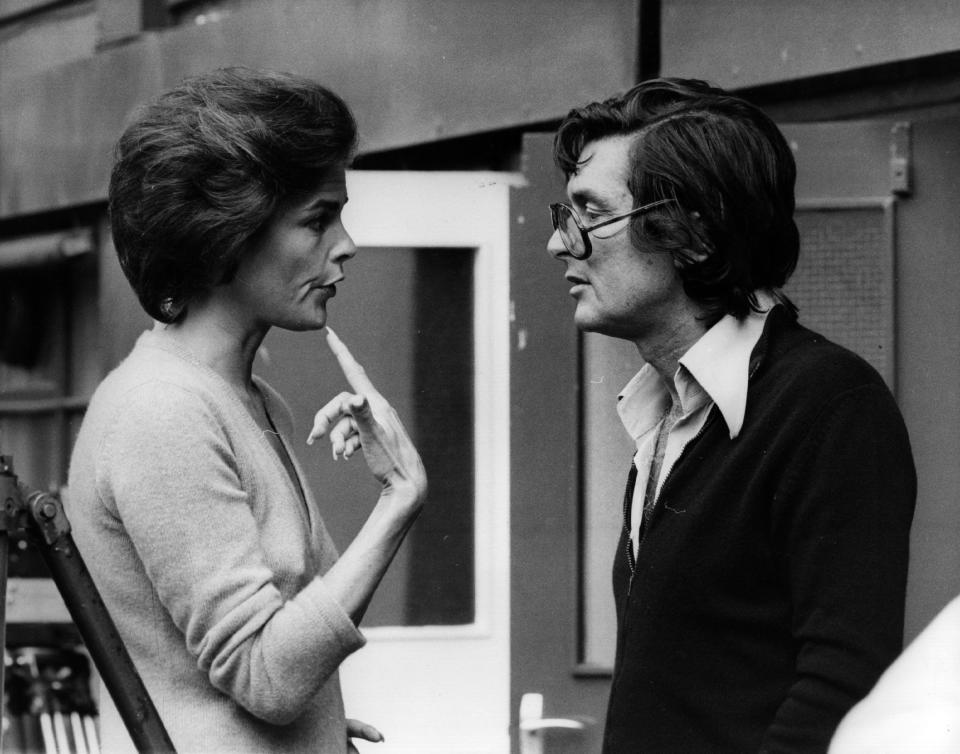Robert Evans, Hollywood’s Golden Boy, Has Died at Age 89
Robert Evans, the American film producer, former studio executive, and industry fixture once called the “boy-king” of Hollywood, died on Saturday, aged 89. Evans, who ascended to the heights of the film industry and plumbed its lowest depths, and then did that whole circuit again at least twice, has been credited with forever changing the course of Hollywood history, though he’d be the first to recommend a healthy dose of skepticism with any major accolade: As he said in his hit 1994 memoir, The Kid Stays in the Picture, “There are three sides to every story: my side, your side, and the truth. And no one is lying.”
Born Robert J. Shapera in New York, the son of a Manhattan dentist, his was what he might have called a classic la-la land reinvention story: a New York–based fashion executive (he liked to say he was “in women’s pants”) dives into the pool at the Beverly Hills Hotel and surfaces a movie star. (It was 1956, and the actress Norma Shearer didn’t need more than his high dive to decide that he was the man to play her deceased husband, Irving Thalberg, in the film Man of a Thousand Faces.) Evans became an actor before he realized that he‘d rather be the one calling the shots (he called his acting “half-assed”). At 36, he became the youngest-ever production chief of Paramount Pictures, and during his tenure green-lit classics like Barefoot in the Park, The Odd Couple, Rosemary’s Baby, The Italian Job, True Grit, Love Story, Harold and Maude, The Godfather, The Godfather: Part II, Serpico, On a Clear Day You Can See Forever, The Conversation, Chinatown, and The Great Gatsby, among others; as an independent producer, he was responsible for Marathon Man, Black Sunday, Popeye, and Urban Cowboy.
He was a photogenic tabloid favorite throughout, not least for his multiple marriages and high-profile liaisons, the most famous of which was with Ali MacGraw, whom he married and adored, even after she later very publicly left him for Steve McQueen. (In his memoir, Evans recounts Henry Kissinger calling to offer his services as peacemaker, saying, “If I can negotiate with the North Vietnamese, I think I can smooth the way with Ali.” The reply: “Henry, you know countries, but you don’t know women. When it’s over, it’s over.”) “As a young girl, I would sort of gaze at him at places like Ma Maison, where he would be dressed in a white linen suit with his tan and his glasses,” Barbara Broccoli, the daughter of prolific film producer Albert R. “Cubby” Broccoli, who oversees the gargantuan James Bond franchise, told Vanity Fair in 2017. “He was such an unbelievably glamorous person, with always the most stunningly beautiful people around him. He was the embodiment of Hollywood—and the American dream.”

Robert Evans
Evans built his reputation on vision. “It was he,” wrote The Guardian, “who ordered Francis Ford Coppola to add nearly an hour to The Godfather after the director turned in an initial cut that resembled, in Evans’s words, ‘a long, bad trailer for a really good film.’” His insights into filmmaking still resonate: “Don’t negotiate a deal you’re not prepared to blow,” “Own the property, [and] you’re a king; if not, you’re a peon,“ “Compromise yourself, but not the integrity of the film,” “If you have too much reverence for something, it will invariably turn out underwhelming,” “Film is like parachute jumping.... You get one shot. If it doesn’t open, it’s dead.”
He also seemed to have nine lives: There were the divorces, some trouble with narcotics, and an ex-girlfriend arrested for the 1983 murder of a producer on one of his films. (He was never charged, and she testified that Evans was not involved, but it was not a particularly palatable association for the industry.) In 1989, afraid he might commit suicide, he checked himself into Scripps Memorial Hospital near San Diego. He left the next day. Five years later, his memoir came out, and he was a star all over again, the original audiobook narrated in his own signature velvet rasp.
In later years, and after suffering three strokes in 1998 (the first reportedly occurring mid-toast during a party he was giving for the director Wes Craven), Evans became more reclusive, preferring to stay out of the limelight, lending only his voice to the narration of the 2002 documentary film adaptation of The Kid Stays in the Picture. He still entertained friends at his beloved Beverly Hills estate, Woodland, which had once been owned by Greta Garbo, and which plays an outsize role in his memoirs as both a lure for the ladies, a place to make deals, and something of his own American dream made real—even though his famed projection room, where he played the dailies from soon-to-be-classic films for luminaries and friends like Warren Beatty, Dustin Hoffman, Mike Nichols, Cary Grant, Fred Astaire, Cher, and Susan Sarandon, burned down in 2003. “I’m still alive. A little battered. But I like myself. For not selling out,” Evans told The Guardian in 2017. “There are people who have bigger homes, bigger boats. I don’t care about that. No one has bigger dreams.”
He was, above all, a man of action, of pursuit, a uniquely American character who envisioned what he wanted and went after it with all he had. Or, as he wrote in his memoir, “Getting into action generates inspiration. Don’t cop out waiting for inspiration to get you back into action. It won’t! Before I take a hike, I leave you with this thought: It’s not a compliment when someone tells you you’re a survivor. It’s bullshit. We’re all survivors till we die. Get out there, go for it, don’t be afraid. Be a winner—that’s what it’s all about.”
Originally Appeared on Vogue

